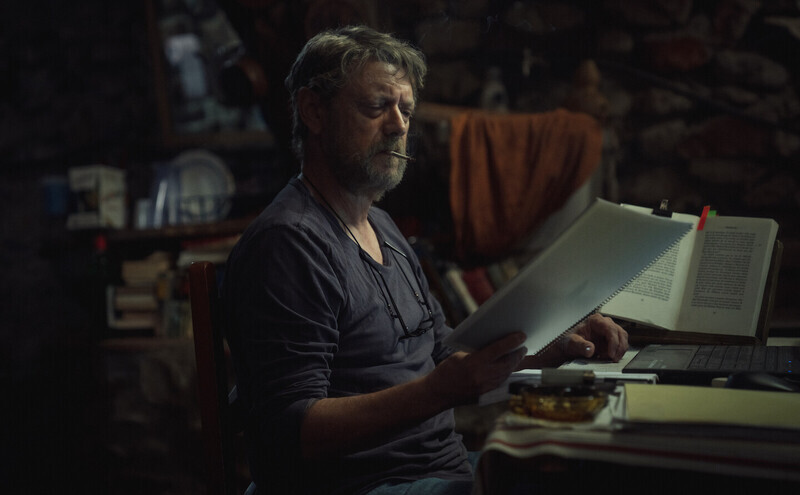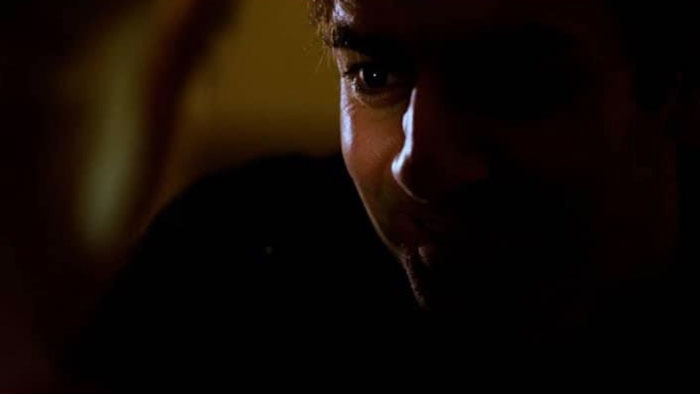His Motorbike, Her Island (1986)
![]()
His Motorbike, Her Island (1986) Directed by Nobuhiko Obayashi
If free and easy were a movie, Nobuhiko Obayashi’s radiantly youthful His Motorbike, Her Island would be a good contender to incarnate its definition. Young people falling in love, lovers squabbling and breaking up, leather jackets, daredevils on motorcycles defying the limits of speed, singing, dancing and crying, there’s nothing cooler than being blissfully young, and Obayashi’s cinematic rebelliousness knows it, which is why he embodies it with such style and avant-garde sass. As soon as we meet the daydreaming young biker Koh Hashimoto (Riki Takeuchi) and his alluring, gleaming Kawasaki W3 motorcycle, we feel like we’re already part of the rollicking ride.
The infallible gimmick Obayashi employs to tame the volatile personality of the plot and its protagonists is to play along with the same witty, impish energy that the profuse juvenile spirit contained in the dramatic context demands with imperative defiance. As a result, the captivated audience of His Motorbike, Her Island has no choice but to succumb to the same vivacious and idyllic pleasures that the buoyant characters infectiously epitomize. Koh Hashimoto’s cool appearance is an adaptable Japanese version of Marlon Brando’s badass and sexy figure in the 1953 film The Wild One, but his demeanor and laid-back attitude is a different world entirely; Koh carries a sensibility too tender and innocent to pass completely as a tough guy by nature, he’s closer to ordinary, and thus easier to identify with emotionally. This renders the film superbly enjoyable – the exuberant script written by Ikuo Sekimoto based on Yoshio Kataoka’s 1977 novel is relentlessly enthusiastic about eliciting utopian bliss in its characters – the irrational formal construction of the plot transitions from monochrome to chromatic visuals without any method whatsoever, it simply does so without respecting any particular pattern. Obayashi professes to be a goofy genius who puts all his efforts into deconstructing the orthodoxy of any established rule of cinematic grammar. His aims may be far from an admirable intellectual endeavor but anyone who says they are not bold or immaculately diverting is simply masking their envy for such a spectacle of nonsensical avant-gardism.
With playful optimism, the film attempts to substantiate its experimental tonal shift with a thrilling interplay of thoughts that juxtapose Koh Hashimoto’s ideals with the same vigor with which the implausibility of the romantic events unfold. Koh’s engaging daily life unravels as if by magic, pure serendipity. One day he meets the spunky and sympathetic Miyoko Shiraishi (Kiwako Harada), who is more fascinated by Koh’s Kawasaki motorcycle than by him. The two begin to run into each other by mere happenstance as if it were a love fairy tale – the frequent jump cuts and other optical trickery further enhance the feel of a romantic fable – and the best thing about this blossoming process of the two characters falling in love is that despite its deliberate contrivances, it can feel so real that one ends up longing for youth. Obayashi eulogizes the young age, those times when being a vigorous young man made you feel sort of immortal. And what better representation of that exhilarating period than youngsters obsessed with a motorcycle and the speed it can give them; the engine power of Koh’s Kawasaki symbolizes the elixir of youth.
It is pure bona fide anarchy what transpires in His Motorbike, Her Island, unleashed with such edgy exhilaration that its formalistic unpredictability seems interchangeable with the characters’ fearlessness and reckless behavior. If the gleefully incoherent nightmare of House (1977) didn’t exist, I wouldn’t hesitate to declare this Obayashi’s best film. It’s one of those films that fills you with such a sense of joviality that you don’t watch the experience, you live it. I guess one of the best ways to sum up its experimental grandiloquence and juvenile playfulness would be, “it’s the closest a Japanese avant-garde film has come to being a French Nouvelle Vague film”.






